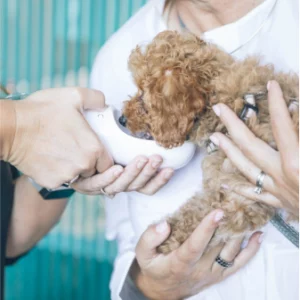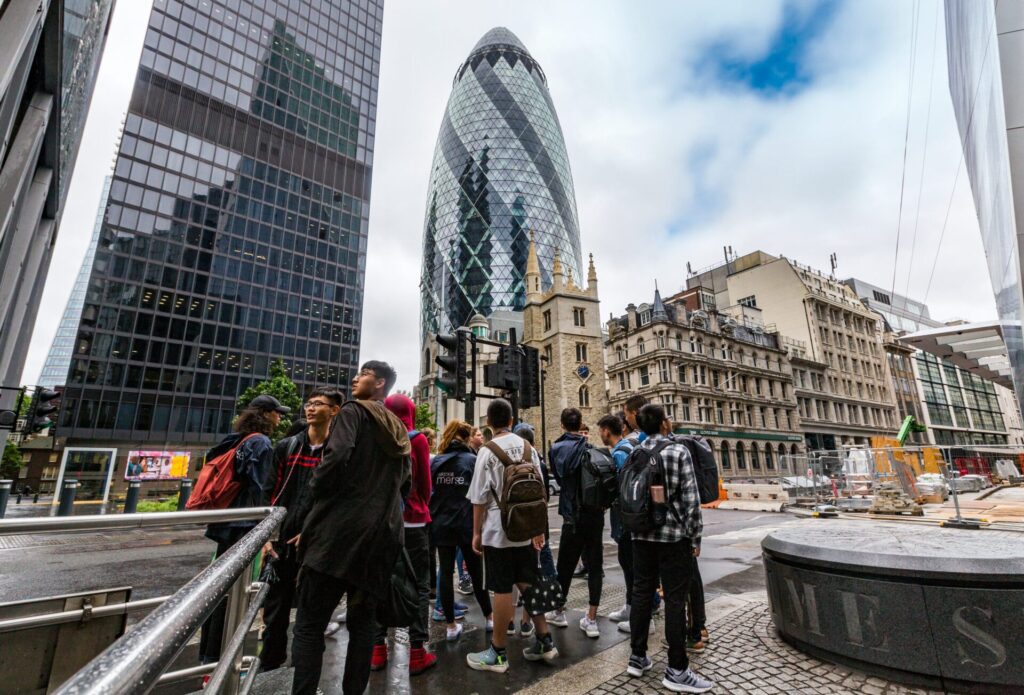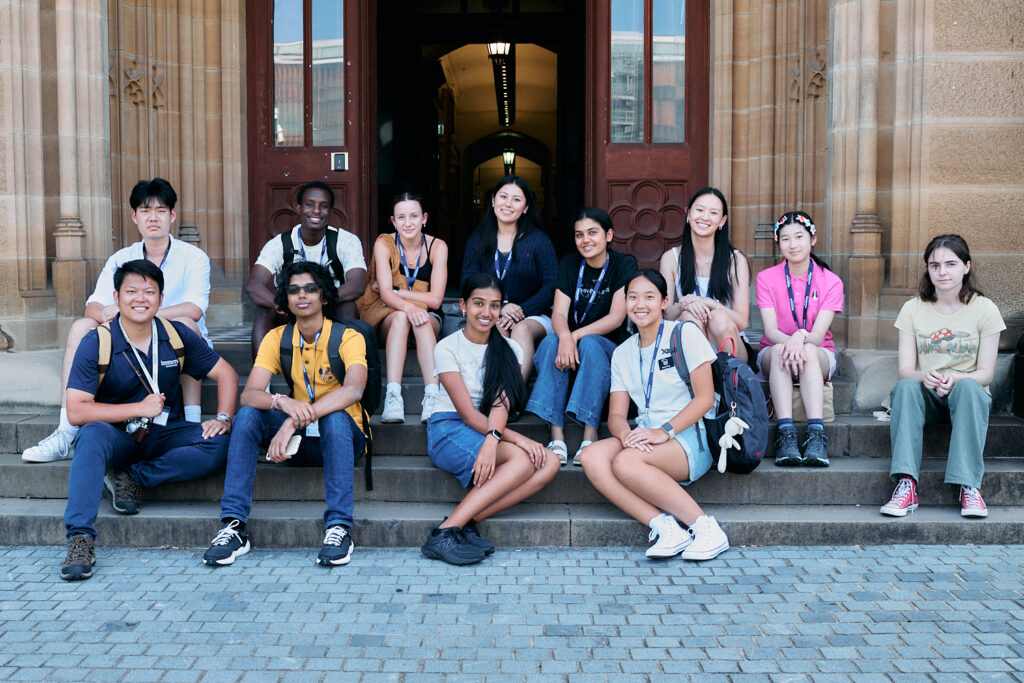Monash University is one of Australia’s most prestigious and globally recognised institutions, attracting ambitious applicants from around the world – particularly those pursuing competitive courses like medicine.
Entry is highly selective, and success requires more than strong grades.
You’ll need to choose the right subjects, plan strategically, and present a clear application that demonstrates both readiness and fit.
Here’s how to get into Monash University with confidence.
Monash University as a Global Choice
Monash University is a world-leading institution with a reputation for innovation, diversity, and academic excellence.
Consistently ranked among the top 100 universities worldwide, Monash attracts aspiring doctors, researchers, and healthcare professionals who want to study in a collaborative, research-driven environment.
Its Faculty of Medicine, Nursing and Health Sciences is one of the largest in Australia, offering pathways into medicine, biomedical science, pharmacy, nursing, and public health. You benefit from cutting-edge facilities, world-class research institutes, and clinical partnerships that provide hands-on experience from the very start.
But Monash’s strengths don’t stop at medicine. The university is also highly regarded in engineering, business, law, and the arts, making it a truly versatile global choice.
With multiple campuses in Melbourne and international locations in Malaysia, China, India, and Italy, Monash delivers a global education ecosystem where knowledge translates into impact.
Still, gaining admission is competitive. Entry into medicine and other high-demand courses requires more than good grades.
Admissions teams look for evidence-based applications that prove academic ability, subject alignment, and the resilience needed to succeed in a demanding environment.
How to get into Monash University: Understanding Monash’s Admissions Framework
When exploring how to get into Monash University, it’s important to understand that the university takes a course-specific approach to admissions, weighing academics, subject preparation, and additional assessments.
- Academic Results: Strong grades are the foundation. For medicine, the published minimum ATAR is 96.35–96.90, but successful applicants often reach 99+. International students face equivalent high benchmarks. Meeting the minimum doesn’t guarantee a place since demand exceeds supply.
- Subject Prerequisites: Each faculty sets non-negotiable requirements. Medicine requires chemistry plus biology or physics, with high achievement in English. Engineering demands mathematical methods and physics, while business benefits from maths as well as English.
- Additional Assessments: Some courses go further. Medicine applicants must sit the UCAT ANZ and progress through a Multiple Mini Interview (MMI), which assesses empathy, ethical reasoning, and communication. Creative programmes like art, architecture, or performance may ask for folios, auditions, or personal statements.
- English Proficiency: You must meet Monash’s English standard, usually through approved school results or tests such as IELTS (6.5 overall, no band <6.0), TOEFL iBT (79+), or PTE (58+). Some faculties, like medicine or law, expect higher scores.
Subject Prerequisites and Academic Profile
If your goal is to study medicine (or a closely related health degree) at Monash, you need to begin planning your subjects early, ideally at the start of your senior secondary years. The right subject choices – and strong performance in them – will set you apart in a competitive admissions process.
For further information, you can also check out Monash’s Guide to Entry.
- Choose aligned subjects
Monash requires English (compulsory) and chemistry in your final year for direct entry into the Bachelor of Medical Science and Doctor of Medicine (MD). Interestingly, biology is not strictly required, but if you don’t study biology, Monash strongly recommends you complete their free online biology bridging course before the program begins. - Maintain strong grades
Your ATAR or equivalent must meet the minimum – 90 for medicine direct entry – but in practice successful entrants typically score much higher. Consistency and upward trends in your results are indicators of academic maturity and resilience. - Opt for rigour where possible
If your school offers advanced tracks (IB, A-Levels, accelerated units), taking those can strengthen your profile and better prepare you for university-level study. - Bridge missing prerequisites
If you haven’t studied biology in Year 12, Monash offers a biology bridging program (online, 5–7 weeks) to help bring you up to speed. This is optional but strongly recommended for students without biology. - Plan for internal pathways too
If you don’t get direct entry into the MD, Monash offers a route via science degrees. For example, if you complete a Bachelor of Science with the required medical prerequisite units and maintain a minimum 70 WAM (Weighted Average Mark), you may be eligible for a Multiple Mini Interview (MMI) as part of the internal medicine admissions process.
Your transcript is the core foundation of your application. It should show not only that you’ve taken the right subjects, but that you’ve achieved consistently high performance and prepared yourself for the academic demands of medicine.
Join the Immerse Education 2025 Essay Competition
Follow the instructions to write and submit your best essay for a chance to be awarded a 100% scholarship.

Course Fit and Campus Considerations
Monash’s campuses each have distinct strengths. Choosing the right one shapes not only your learning but also your placements and student experience. How will this help you to get into Monash University? Well, if you can explain your choice persuasively at interview, you’ll come across excellently.
1. Clayton
Clayton, Monash’s flagship campus about 20 km from Melbourne’s CBD, is the largest and most research-intensive site. Hosting medicine, science, engineering, IT, and law, it’s ideal for students seeking advanced labs, global research networks, and research-heavy professional programmes.
Best for: Medicine, biomedical sciences, engineering, IT, law.
2. Caulfield
Caulfield blends creativity with commerce, specialising in business, design, architecture, and media. Home to the Monash Museum of Art (MUMA), it offers an innovative environment linking theory to practice. You’ll thrive here when pursuing entrepreneurial, design, or creative industry pathways.
Best for: Business, design, architecture, creative arts, media.
3. Parkville
Parkville, located in Melbourne’s biomedical precinct, is dedicated to pharmacy and pharmaceutical sciences. Ranked #2 globally in its field, it offers unparalleled links to hospitals, labs, and research institutes. Perfect if you’re pursuing pharmaceutical innovation, chemistry, or drug development.
Best for: Pharmacy, pharmaceutical sciences, medicinal chemistry.
4. Peninsula
Peninsula, Monash’s community-focused campus in Frankston, specialises in health and education. With the Health Futures Hub and partnerships with Frankston Hospital, it provides outstanding clinical placements. It’s best if you’re a hands-on learner pursuing health, teaching, or allied health practice.
Best for: Nursing, physiotherapy, occupational therapy, paramedicine, education.
5. Law Chambers (Melbourne CBD)
Monash Law Chambers, based in Melbourne’s central business district, offers graduate and professional law programmes in close proximity to Victoria’s courts, legal precincts, and firms. This location immerses you in Australia’s legal heart, fostering networking and professional opportunities.
Best for: Law, international law, professional legal practice.
What to Consider
- Teaching mode: Lab, studio, or placement-heavy courses need the right facilities.
- Placements & research: Proximity to hospitals, industry, or creative hubs matters.
- Campus culture: Clayton is large and diverse; Peninsula offers a tighter community feel.
- Logistics: Factor in commuting, intercampus shuttles, and proximity to Melbourne’s CBD.
Application Materials and Evidence
The answer to “to get into Monash University” is not just “get the grades”. You’ll need more evidence of who you are and why you’re prepared for your course. Every element should reinforce your motivation, reliability, and fit.
Personal Statement
Use your statement to connect academics and impact. Link subject choices, projects, or extracurriculars directly to your chosen course. Highlight curiosity, resilience, and collaboration, and show why Monash’s facilities, research, or placements align with your ambitions.
References
Choose referees who know you well and can speak to your curiosity, growth, reliability, and teamwork. Teachers or mentors who’ve seen your long-term development are most effective, as they provide credible insight into both ability and character.
Portfolios and Interviews
Some courses require extra evidence: portfolios in design, auditions in creative arts, or MMIs for medicine. These assess qualities beyond academics – such as communication, empathy, and problem-solving – so prepare examples that illustrate your strengths.
International Applicants and Practicalities
If you’re applying from overseas, it will take careful planning around English proficiency, documents, visas, deadlines, and scholarships to get into Monash University.
- English Proficiency: IELTS (6.5 overall, no band < 6.0), TOEFL iBT (79+ with section minima), or PTE Academic (58+). Higher scores may be required for Medicine, Law, and Health. Bridging courses are available through Monash’s English Language Centre if needed.
- Documentation: Provide certified copies of academic transcripts, identity documents, and translations (if not in English). Keep originals safe – Monash may request them for enrolment or visa checks.
- Visa, OSHC & Timelines: Arrange Overseas Student Health Cover (OSHC) after accepting your offer. Monash issues a Confirmation of Enrolment (CoE) once OSHC is confirmed – this is required for a student visa. Visa processing may take weeks to months; prepare for possible “Genuine Student” checks.
- Key Dates: Book English tests early so results arrive on time. Request references months in advance. Track deadlines for submissions, scholarships, and visa lodgement using one master checklist.
- Scholarships & Financial Planning: Monash offers awards like the International Merit Scholarship (AUD 10,000 per year). Some scholarships require an unconditional offer and extra essays or documentation. Explore external funding options (government or embassy awards) alongside Monash’s. Align scholarship deadlines with your main application timeline.
Where Pre College Medical Programmes Can Help You Get into Monash University
If you’re medicine-inclined, it’s not enough to simply achieve strong grades – you also need to demonstrate that you understand what a future in medicine involves. This is where selective pre college medical programmes, including summer schools, can give you an edge.
These programmes don’t replace the academic results Monash requires, but they can provide practical, hands-on exposure that strengthens your profile. Examples include:
- Clinical Simulations and Lab Work: Gaining practice in suturing techniques, analysing blood samples, or working with anatomical models shows readiness for Monash’s lab-intensive courses.
- Patient Case Studies: Developing diagnostic reasoning through structured case discussions – such as interpreting symptoms or proposing treatment options – demonstrates applied problem-solving.
- Health-Focused Projects: Presenting a group research project on topics like public health challenges or the ethics of organ donation highlights collaboration and critical thinking in medical contexts.
These kinds of experiences add credibility to your application by proving you’ve engaged with medicine beyond the classroom, while keeping academics and subject alignment as your core strength.
Pre college summer medical programmes, like those offered at Immerse Education, can give you this kind of experience – combining clinical case studies, group projects, and lab-style learning that you can reference naturally in your Monash application.
Turning Preparation Into a Cohesive Story
One of the keys to mastering how to get into Monash University is ensuring that your application elements work together to tell one clear story.
Admissions officers should see a consistent narrative where your academic results, subject choices, and extracurricular activities all point toward your readiness for the course you’ve chosen.
If you include pre-college experiences – such pre college medical summer programmes – these should serve as supporting details that illustrate curiosity and initiative, without distracting from your academic foundation.
By tying academics, activities, and experiences from pre college medical programmes into one narrative, you show both breadth and depth of preparation.
Conclude your application with a confident personal statement that connects your goals directly to Monash’s unique strengths, making it clear not only why you are a strong candidate, but also why Monash is the right place for you to achieve those goals.
Conclusion
How to get into Monash University isn’t a mystery – it’s about aligning your subjects, excelling academically, and supporting your application with experiences that demonstrate ambition.
For future medical students, this might include referencing outcomes from pre college medical programmes. Tie it all together with a confident personal statement, and you’ll present yourself as a strong fit for Monash.
Ready to prepare with purpose? Immerse’s Sydney summer school offers a chance to gain hands-on exposure that complements your academic journey.



















